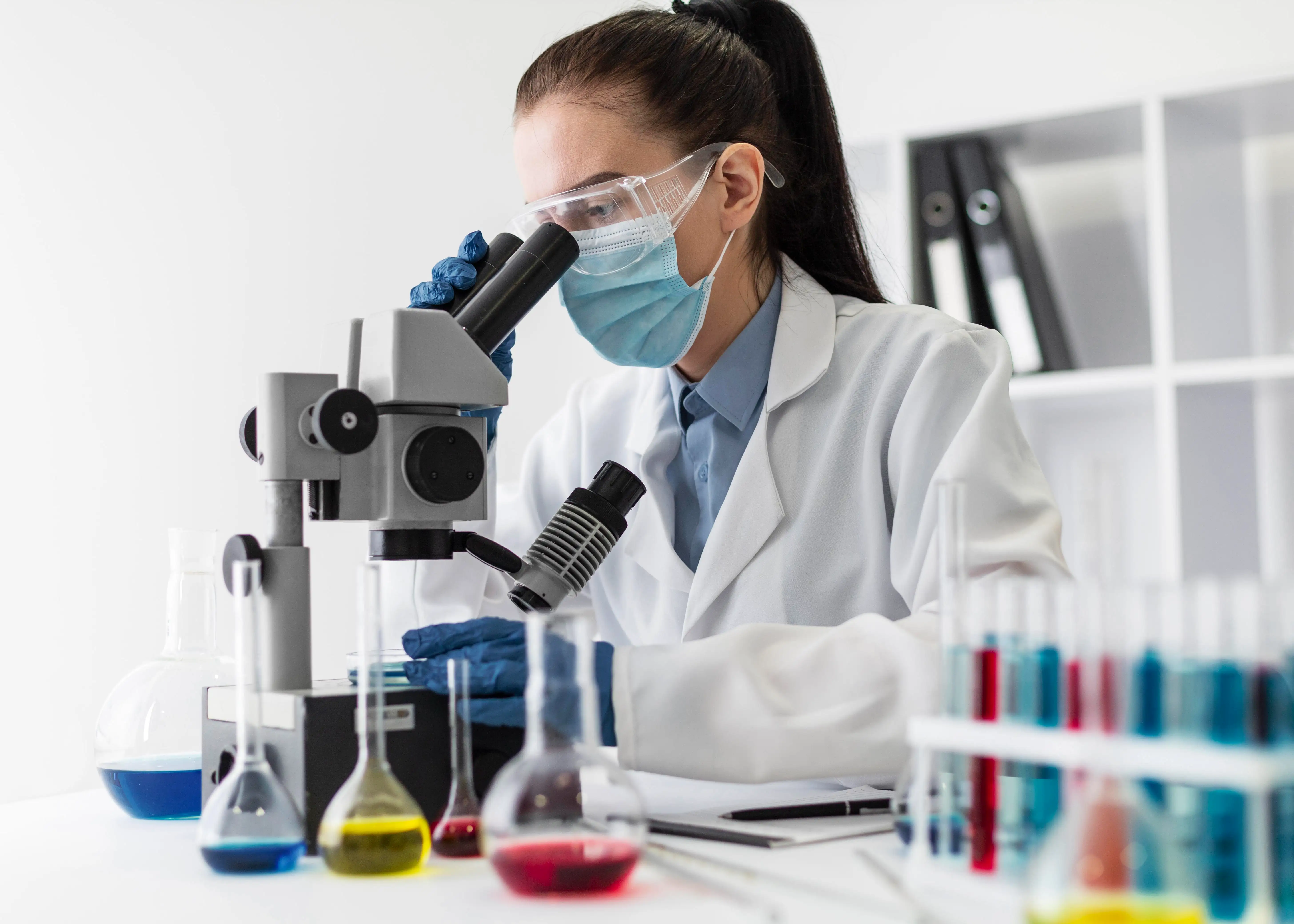Career Scope and Job Prospects after M.Sc Microbiology

Enhance your academic knowledge of the latest advances in microbiology and improve employability and career prospects with the M.Sc. Microbiology course at ITM Institute.
M.Sc. Microbiology is a postgraduate degree with a wide range of professional options and global career prospects. This curriculum focuses on the study of microorganisms and parasites such as bacteria, fungi, algae, and so on. Some of the best microbiology institutes in the country provide this program to graduates with a B.Sc. in Microbiology degree. Individuals with these credentials are vital employees in the healthcare industry since they examine human bodily samples to diagnose disorders. Following the diagnosis, these professionals are involved in the development of pharmaceuticals, vaccines, and other medications that can cure diseases and save lives.
MSc in Microbiology is designed to improve one's academic knowledge of the most recent breakthroughs in microbiology as well as one's employability and professional chances. The MSc Microbiology course is designed to teach you the fundamental principles of microbiology.
The Master of Science in Microbiology course lasts two years and is full-time and below are the primary objectives of this program.
Provide scientifically updated, simplified industrial and research-relevant curriculum.
Improve the student's analytical, quantitative, presenting, and teaching skills.
Assist the student in defining his or her topic/area/field of research and providing targeted learning to enhance his or her competence and collection of key research literature in the chosen field during the first year of the course.
Guide and develop the abilities of scientific writing, research procedures, and their significance.
Master of Science in Microbiology Course Overview
The two-year full-time course would be split into four semesters (approximately 6 months each semester). This semester's activities will include curricular, extracurricular, co-curricular, and social awareness activities. The curriculum has been separated into classroom-based courses and field/research-based projects that will be evaluated. Students learn 12 specialized courses in microbiology over the course of two years, as well as one short-term dissertation/industry internship project lasting six months in the fourth semester, as well as many short-term projects and training programs, and hands-on workshops lasting a few days throughout the course. Students will be encouraged to present their dissertation/research work at various levels of conferences and will be supported in publishing research articles and reviews.
Master of Science in Microbiology Eligibility
Applicants with a minimum of 50% aggregate marks in any branch of life sciences.
Career Scope after M.Sc Microbiology
There are several research prospects for a microbiologist in urban disease control, formulation research, clinical research, analytical development, and new pharmaceutical creation, thanks to significant corporations investing in R&D. Although teaching without a degree is conceivable, it is not advised. Microbiologists who work for themselves can set up their own laboratories. Those who acquire GRE or TOEFL scholarships and go on to earn a Ph.D. and/or Post-Doctoral studies may be able to find microbiological careers at foreign institutes or R&D divisions of multinational pharmaceutical corporations. A Microbiologist postgraduate potentially works in a variety of fields such as -
Food and Drug Industry
Beverage industry
Research and development lab
Hospitals
Clinical lab
Pharma companies
Scientists
Academics
Top Career Options after M.Sc
Microbiologists are researchers who study the molecular and cellular structure of microbes. They also investigate the ecology of these microbes in order to better understand their behavior. Microbiologists work in a variety of sectors, including healthcare research, pharmaceutical research, agriculture, ecology, food safety, and others. Microbiologists must be familiar with several types of computer software that can assist them in doing more precise research and studies.
Biosafety Officer investigate various infections and germs in high-tech research centers across many industries. These individuals are responsible for the overall safety of the lab, its personnel, and its specimen storage facilities. They must develop lab safety precautions to prevent personnel from becoming unwell as a result of the microorganisms being studied. They must also ensure that no harmful organisms from the laboratory are released into the environment.
Food Technologist are highly sought after in the food and beverage industry. These experts are in charge of testing food and ensuring that formulations meet regulatory requirements. They inspect the food quality, content, safety, and overall integrity of the ingredients used on a regular basis. Food scientists examine a wide range of packaged food and beverage goods, including soft drinks, biscuits, fast meals, chocolates, and so on. Errors committed by these specialists may subject businesses to legal liability.
Research Scientist are experts that investigate germs, illnesses, and viruses to determine how they interact with human or animal bodies. They look at the impact these microorganisms can have on a person, the level of transmission, and the path of disease progression within the body. The findings of the study could lead to the creation of life-saving treatments and drugs for a number of diseases. These experts are also in charge of crafting compelling proposals to secure funding from the government or other organizations through research grants.
Quality Control Technician in microbiology are in charge of ensuring the integrity and safety of a company's various products. They must also inventory the raw materials used in the design of a product, evaluate the prototype of a final product, and confirm that the product's packaging meets industry and safety regulations. Aside from that, these specialists must maintain correct documentation and reports on a regular basis in accordance with corporate regulations.
Diagnostic Scientist work in clinical pathology laboratories. Depending on their specialty, they are entrusted with performing pathological examinations and collecting samples from humans and animals. They must next evaluate the gathered sample and identify the patient in order to narrow down on the microbe and help doctors prescribe the appropriate treatment. These individuals work in healthcare settings such as hospitals, pathology labs, and private clinics.
Other Career Opportunities
Professionals with this qualification can work as university lecturers in some of the country's most prestigious M.Sc Microbiology colleges, as well as abroad. Aside from that, these people can work in museums, non-profit organizations, government agencies, philanthropic organizations, or schools. They can also become entrepreneurs by establishing their own independent coaching sessions or teaching at private coaching colleges.ConclusionA career in microbiology can be extremely satisfying because you will be helping to battle diseases and keep people safe and healthy. Look for a college like ITM University that offers an industry-synced curriculum, comprehensive lab sessions, project-based learning, and 100% placement support.
.webp)

